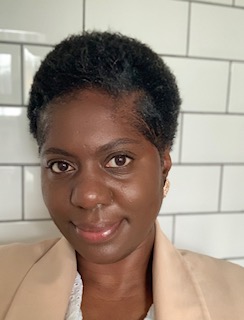COVID-19 in Lewisham - 5 February update
 Whilst the number of people testing positive for COVID-19 is showing signs of declining across London, we know that the new variants of the virus are easier to spread. The NHS continues to be under significant pressure to look after those who are seriously ill with COVID-19 and need hospital treatment. Across Lewisham, we’re making great progress with the vaccination roll out and we can’t risk undoing this good work.
Whilst the number of people testing positive for COVID-19 is showing signs of declining across London, we know that the new variants of the virus are easier to spread. The NHS continues to be under significant pressure to look after those who are seriously ill with COVID-19 and need hospital treatment. Across Lewisham, we’re making great progress with the vaccination roll out and we can’t risk undoing this good work.
The most important thing that we can all do is continue to follow the stay at home rules which are in place, wash your hands regularly and thoroughly, keep your distance, and cover your face. If you do test positive for COVID-19, you must stay at home (self-isolate) to stop the spread of the virus and protect those around you.
Your vaccination questions answered
We know from our COVID-19 vaccine survey that Lewisham’s residents want to be reassured on the vaccination’s safety by people they trust – their own doctor or a close friend or family member. Sitting down to chat through concerns is an important way to help everyone understand why it is so important to get the vaccination.
- NHS England have produced a range of COVID-19 vaccination information videos in multiple languages including Arabic, Bengali, Polish, Swahili, Turkish, Yoruba and others that you can share with others. Watch COVID-19 vaccination information videos on the NHS website.
- Just because you’ve read something online or via social media about the vaccination, doesn’t mean that it’s true. Use the Government’s SHARE checklist to help check if the information that you have read is factual before you share it with others.
- Here in Lewisham, the NHS South London CCG is a reliable, trusted source of information. Take a look at the vaccination FAQs which are updated regularly on the NHS South London CCG website.
I’ve picked out some of the most frequent questions I’m asked and answered them below. Have a read and help your loved ones understand the truth about the COVID-19 vaccination and why it’s such a positive step forward for everyone.
I’m worried because I’m not very healthy and the vaccination might be risky for me.
If you are unwell or have long-term health conditions, it is understandable to be cautious. I would like to reassure you that the vaccination has been through rigorous tests to ensure it is safe. If you have underlying health conditions, you are likely to be more at risk of getting more seriously ill if you catch COVID-19. The risks of the virus are far outweigh any from the vaccination itself.
There have been extensive trials including participants of various ages and those with underlying health conditions and there’s no indication that there should be any difficulty in giving the vaccination to people with chronic underlying conditions.
Are there any side effects?
Like all medicines, vaccines can cause side effects but the most common ones are mild and short-lived. After the vaccine, you may have a painful, heavy feeling in your arm, you might feel tired and perhaps develop a headache but most people report feeling absolutely fine after having the vaccination.
How long before people vaccinated can return to normal life?
Getting the vaccination is not a ticket to freedom and we must all continue to do our bit to protect everyone in our community and help stop the spread of the virus. Everyone needs to continue to follow the stay at home rules and keep up with the everyday actions – washing hands regularly, wearing a face covering and keeping the safe 2m distance from others.
The Government has indicated that once a significant proportion of the whole population has been vaccinated, particularly the most vulnerable groups with both doses, it might be possible to consider how current restrictions could be eased.